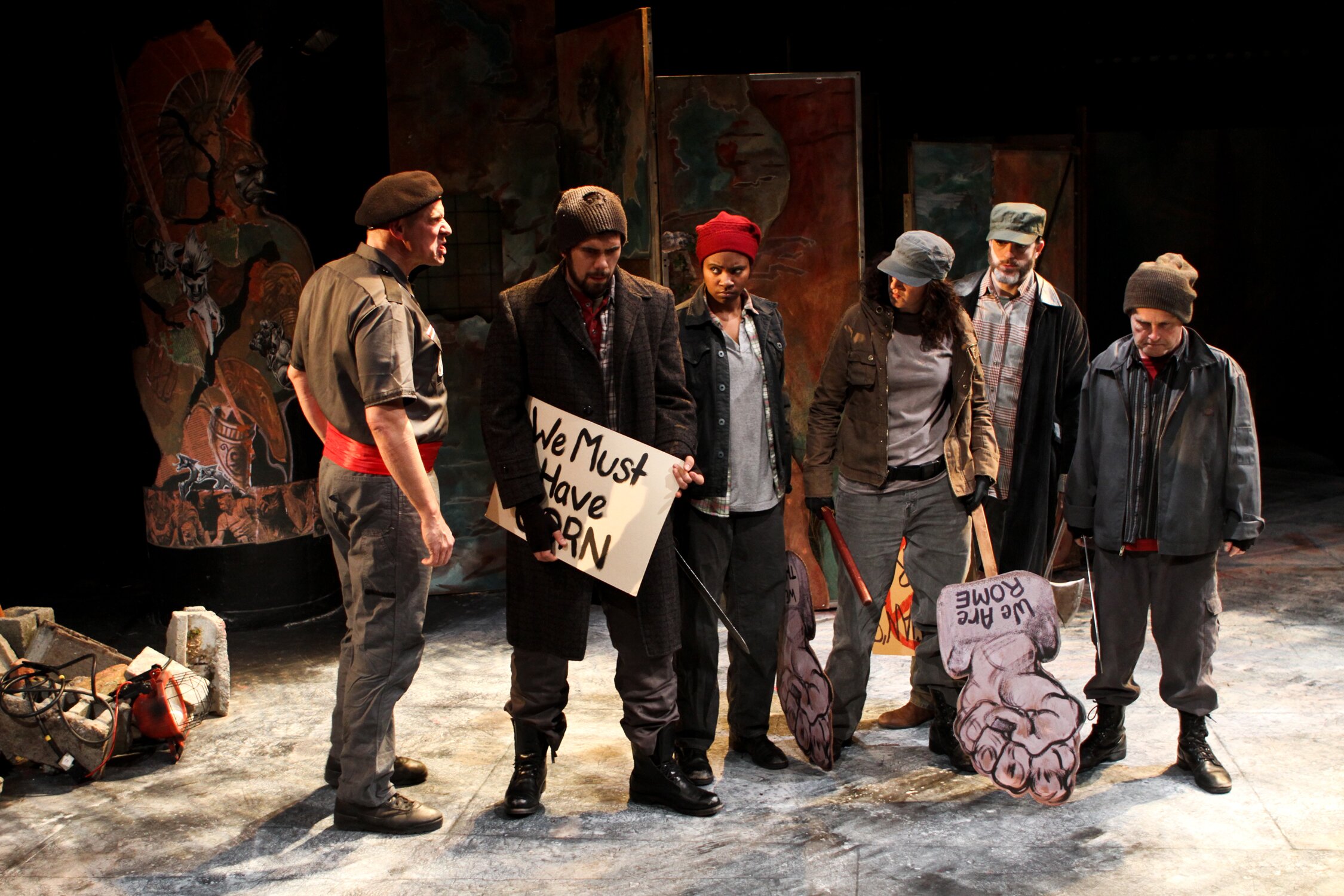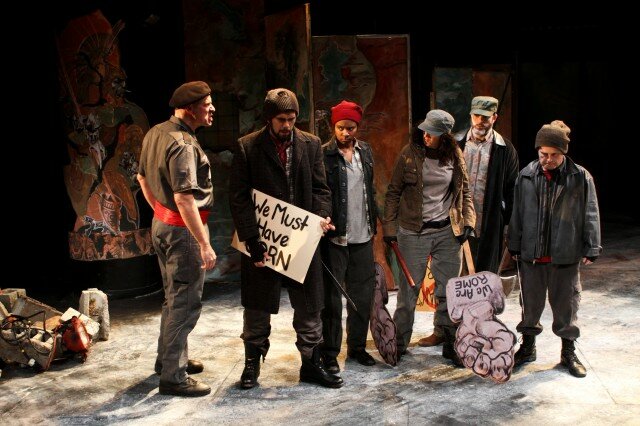(Photo: Michael Brunk/nwlens.com)
When John Patrick Shanley’s Doubt opened on Broadway in 2005, it felt politically charged. The title itself suggested a critique of the self-assurance that defined the era’s political leadership.
Beneath that title lay a story that played off contemporary fixation on pedophilia in the priesthood in the comforting context of the civil rights era. That comfort was all the more palpable as the release of the film adaptation came along — we had just elected our first black president and, some suggested, initiated a post-racial era.
Context still makes an impact on this play, and Theatre9/12’s production (through August 4) takes advantage of that to varying degrees of efficacy. More impressive, however, is that the play, and this production’s, powers are not so much dependent on context as enhanced by it. Were these fine actors to perform this excellent script before an audience in a void the impact would be as strong.
The script reaches back to Shanley’s roots growing up Catholic in the Bronx in the ’60s. It centers on Sister James (Kate Alden) a naïve young nun in love with teaching who finds herself caught up in a power struggle. The school principal, Sister Aloysius (Therese Diekhans), is certain that a beloved parish priest, Father Flynn (Michael Oaks) is a pedophile despite a complete lack of evidence. Aloysius asks James for that evidence so she may make her accusation.
James is left cowed and off-balance by this request. However she soon reports signs that raise questions about a meeting between Father Flynn and the school’s first black student, though they are far from proof of anything.
The politics are complicated. In addition to tangling with pedophilia and racism, Shanley also gets into issues of gender politics within and beyond the church. The women of the play work around the system, making hard choices to achieve their ends. The sisters do so in the face of the male-dominated church hierarchy. Mrs. Muller (Rachel Pate), mother of Father Flynn’s alleged victim, fights to protect her son from his abusive father and the racist and homophobic world beyond.
Theatre9/12’s production evokes the prevailing national politics suggested by the script with walls of alternating red and blue panels. While this actor-funded shoestring company’s sets are never a draw, this choice adds less to the production’s emotional and intellectual impact than, by its roughness, it subtracts. The best parts of the set derive from Theatre9/12’s location. The community hall of Trinity Parish Episcopal Church may be the ideal venue for this play. If not for the furnishings, this theatre’s house would feel more like the setting than the stage.
About two-thirds of the way through the evening, the material qualities of this production fade from view and the characters take over. Shanley makes it impossible for an impartial audience to come to any conclusion, while tying our sympathies to characters whose actions may be abhorrent. This creates a perfect kind of drama that feels completely authentic and complex. The conflict is as much within us as audience as it is between the characters on stage.
Of course such an achievement would be less likely without this cast’s excellent acting under the guidance of Charles Waxberg. There is no stand-out in this finely balanced ensemble. Though Oaks’s opening monologue/homily was rushed at a recent performance, he quickly settled into Father Flynn’s natural, yet fragile ease.
Oaks is the only actor who speaks with a Bronx accent and does so naturally. This emphasizes his connection to the laity, a relationship emphasized when Pate enters with the sound of the black migration north in her voice. These are characters who live in the world and not apart from it. Even these sisters, who live such fully cloistered lives, live them with such commitment that the environment of Doubt comes to us even when played on its home turf.

